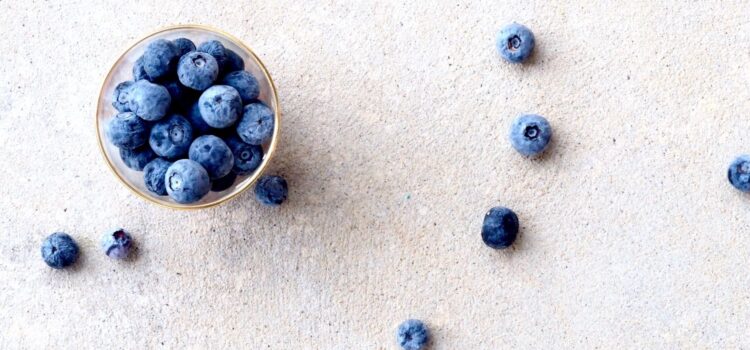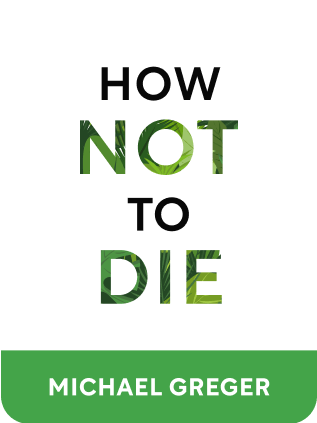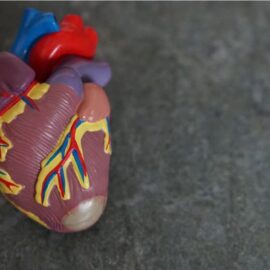

This article is an excerpt from the Shortform book guide to "How Not to Die" by Michael Greger. Shortform has the world's best summaries and analyses of books you should be reading.
Like this article? Sign up for a free trial here .
How much fruit should you eat per day? What fruits are the healthiest nutrition-wise?
The daily recommended fruit intake is 3 medium servings per day, but what fruit should you go for? If you want to get the biggest bang for your nutritional buck, you should opt for the ones that contain the most antioxidants and other protective compounds.
The following fruit intake recommendations are taken from How Not to Die, a science-backed nutritional guide written by physicians Gene Stone and Michael Greger.
Fruits and Berries: Nutrients and Benefits
Studies show:
- A diet low in fruits is found to be the second leading dietary factor for global disease burden in DALYs
- Fruit is associated with lower cardiovascular disease and type 2 diabetes.
- Berries protect against cancer
- Immune system boost. 1.5 cups/day of blueberries for 6 weeks doubled natural killer counts in athletes after intense exercise, when normally it drops by half
- Protection for the brain. Women who ate one serving of blueberries and two servings of strawberries a week had slower rates of cognitive decline, by as much as 2.5 years.
- Fructose in fruit is less harmful than added fructose. Fiber, antioxidants, and phytonutrients in berries may cancel out the harmful effects of fructose, such as by lowering the rate of absorption.
- A small trial found that feeding a diet that included 20 servings of fruit per day had no effect on weight, blood pressure, or triglycerides, but lowered LDL by 38 points.
- Flavonoid intake is associated with lower risk of fatal cardiovascular disease.
- Moderate your intake of berries and anti-inflammatory drugs during 3rd trimester of pregnancy, since berries contain anti-inflammatory polyphenols
Are fruits and nuts fattening?
- In an experiment, one group was told to eat two fruit-and-nut bars daily. Despite the extra 340 calories from the bars, they didn’t gain weight after two months.
- Fruits and nuts are satiating. They offset calories elsewhere, while delivering better nutrients than common processed foods.
- Berries contain 10x more antioxidants than other fruits and vegetables by density
- Compared to fresh berries, frozen berries are roughly the same in nutrition or about 20% less nutritious in antioxidant activity, but tend to last longer and are cheaper.
- However, berry jams lose the majority of nutrients.
Specific Choices
Here are some of the most nutrient-dense fruits and berries you can eat.
Watermelon
- Seeds have respectable antioxidant levels.
- Citrulline is useful for erectile dysfunction.
Apples
- In a study, eating a dozen dried apple rings a day dropped LDL 16% in 3 months.
Grapefruit
- Be careful with grapefruit when you’re on medication—grapefruit can suppress liver enzymes that metabolize drugs.
Avoid olives
- This is an anti-recommendation: avoid eating high-sodium olives.
- Olive oil has most of the olive’s nutrition removed, so try cooking without oil.
Blackberries
- Contain the highest antioxidant density at 650 units, vs. blueberries at 380, raspberries at 350, strawberries at 310, mangoes at 110, and apples at 60.
Cherries
- Can reduce inflammation. Useful for gout.
Goji Berries
- Highest concentration of melatonin. 3rd highest antioxidant capacity of common dried fruit.
- Zeaxanthin content helps protect against macular degeneration.
Black Currants
- Improves computer eye strain—may be due to anthocyanins.

———End of Preview———
Like what you just read? Read the rest of the world's best book summary and analysis of Michael Greger's "How Not to Die" at Shortform .
Here's what you'll find in our full How Not to Die summary :
- The health benefits of a plant-based, whole-food diet
- How to reduce your risk of developing the most common diseases that can kill you
- The 12 foods you should eat daily to maximize health benefits






